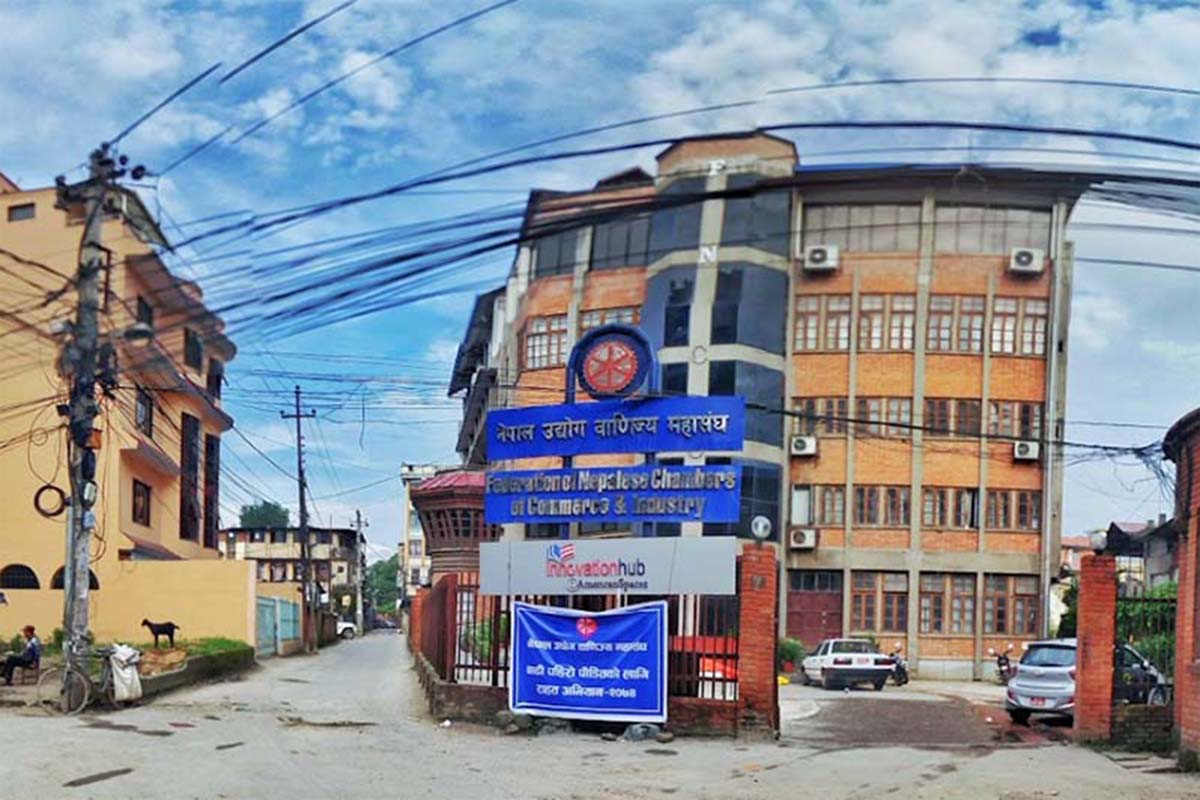
KATHMANDU: Federation of Nepalese Chambers of Commerce and Industry (FNCCI) has welcomed the monetary policy for fiscal year 2025/26 presented by Nepal Rastra Bank Governor Dr Biswo Nath Poudel, but called for further refinement to enhance targeted investment and mitigate financial sector risks.
The policy retains the stable exchange rate between the Nepali rupee (NPR) and the Indian rupee (INR) as an interim target, which FNCCI describes as essential to safeguarding Nepal’s international trade.
Interest rates across the corridor have been revised: the bank rate has been reduced from 6.5% to 6%, the deposit-collection rate from 3% to 2.75%, and the policy rate from 5% to 4.5%. FNCCI believes these cuts will encourage lending but cautions that lower savings rates may discourage depositors.
Housing loan limits for private residential construction and purchase have been raised from Rs 20 million to Rs 30 million. First-time buyers may now access up to an 80% loan-to-value ratio, with subsequent purchases capped at 70%. FNCCI expects this adjustment to stimulate housing activity.
Banks and financial institutions (BFIs) are now permitted to appraise collateral independently and extend agricultural or commercial loans of up to Rs 1 million. FNCCI notes these loans will benefit from relaxed provisioning rules and flexible terms aligned with production cycles, and that those aimed at boosting agricultural output, as recommended by the Nepal Agricultural Research Council (NARC), are also prioritised.
Working capital loans may be tailored to sector-specific business and repayment cycles in agriculture, education, health, small and cottage industries, media, communication and sports. FNCCI urges further easing to allow banks and borrowers to determine terms independently.
Tourism and food-service businesses located near the Postal and Mid-Hill Highways, and adjacent to major markets, will benefit from special SME lending. Loans of up to Rs 30 million in these zones will count towards SME quotas and carry premiums not exceeding two percentage points above the base rate. Enterprises certified by the Department of Food Technology and Quality Control will be prioritised.
BFIs may subscribe to debentures issued by entities focused on government-designated infrastructure sectors, a provision FNCCI says aligns with its previous recommendations.
Loans to government-registered land-development and building-construction firms may be restructured and rescheduled. Commercial projects in earthquake-affected areas such as Jajarkot and Rukum may receive concessional interest rates and revised repayment terms. FNCCI proposes extending such relief to all struggling borrowers.
To strengthen capital markets, the margin loan limit per client backed by share collateral has been increased from Rs 150 million to Rs 250 million.
The monetary policy includes amendments to blacklist provisions for cheque dishonour, though FNCCI reiterates the need for a comprehensive debt-recovery law.
National budget reforms have been incorporated, including streamlined concessional-loan procedures and digital integration of public payments. Measures to encourage remittance inflows via formal channels were introduced, while FNCCI recommends liberalisation of internal remittance services to improve liquidity.
Foreign investment provisions include amendments to the Foreign Investment and Foreign Loan Management By-law, 2078, allowing improved repatriation of principal, interest and dividends. FNCCI urges swift implementation, noting foreign investment currently accounts for just 0.2% of GDP.
Plans are under way to establish an asset-management company for non-performing loans and non-bank assets, and to classify remittance firms by capital and transaction size.
Digital-lending regulations will be revised to enable transaction-based loans to micro, small and medium enterprises via online platforms. The policy also supports centralised Know Your Customer (KYC) data collection through the National ID, with infrastructure planned for electronic data sharing across banking institutions—FNCCI proposal it has long advocated.
The “Borrower with Nepal Rastra Bank” programme aims to strengthen engagement with rural borrowers and amplify their representation in policymaking.
NRB projects broad money supply growth of 13% and private-sector credit expansion of up to 12% for fiscal year 2025/26. FNCCI notes current credit growth remains below 8% and stresses that effective implementation of directives and circulars is critical to achieving policy objectives.






